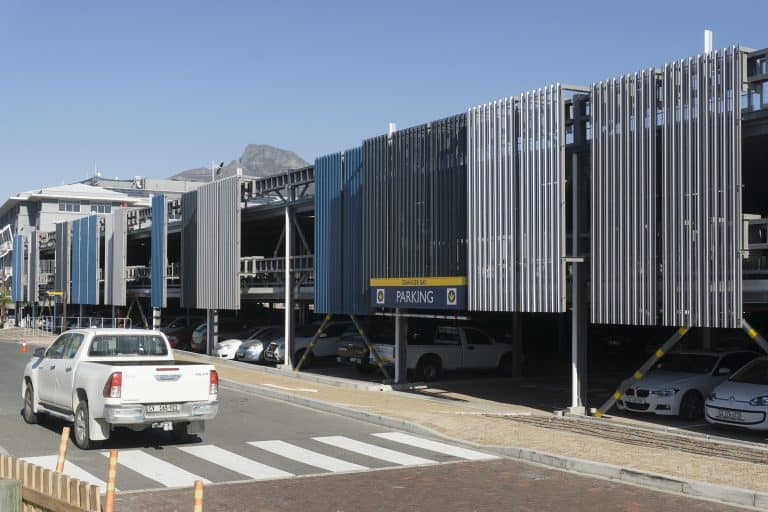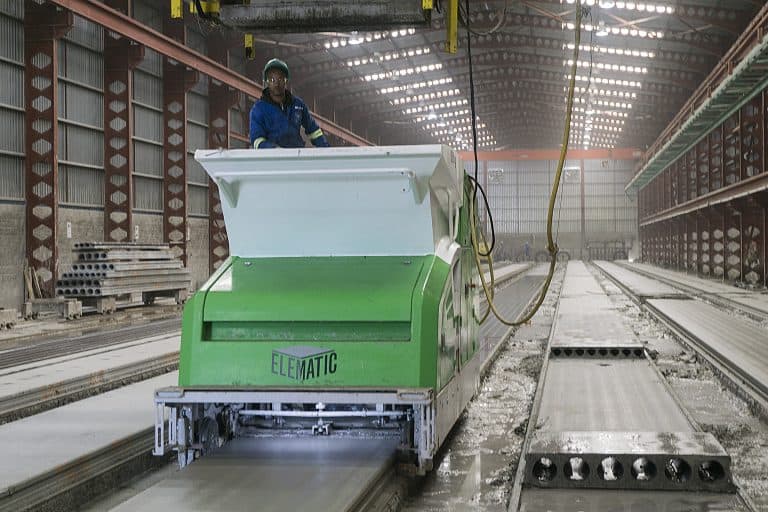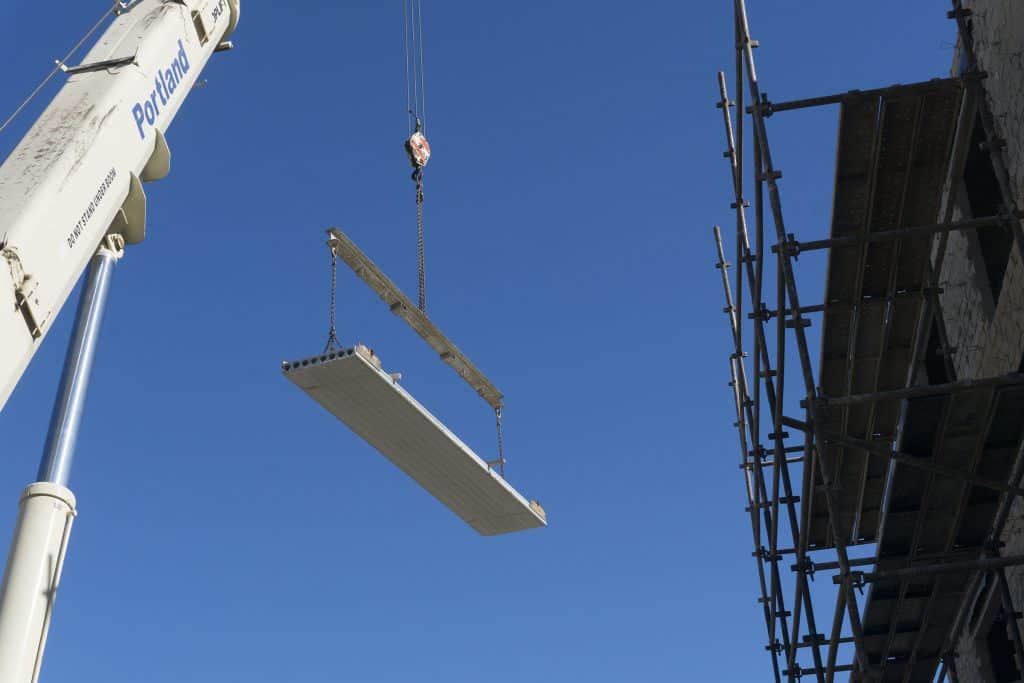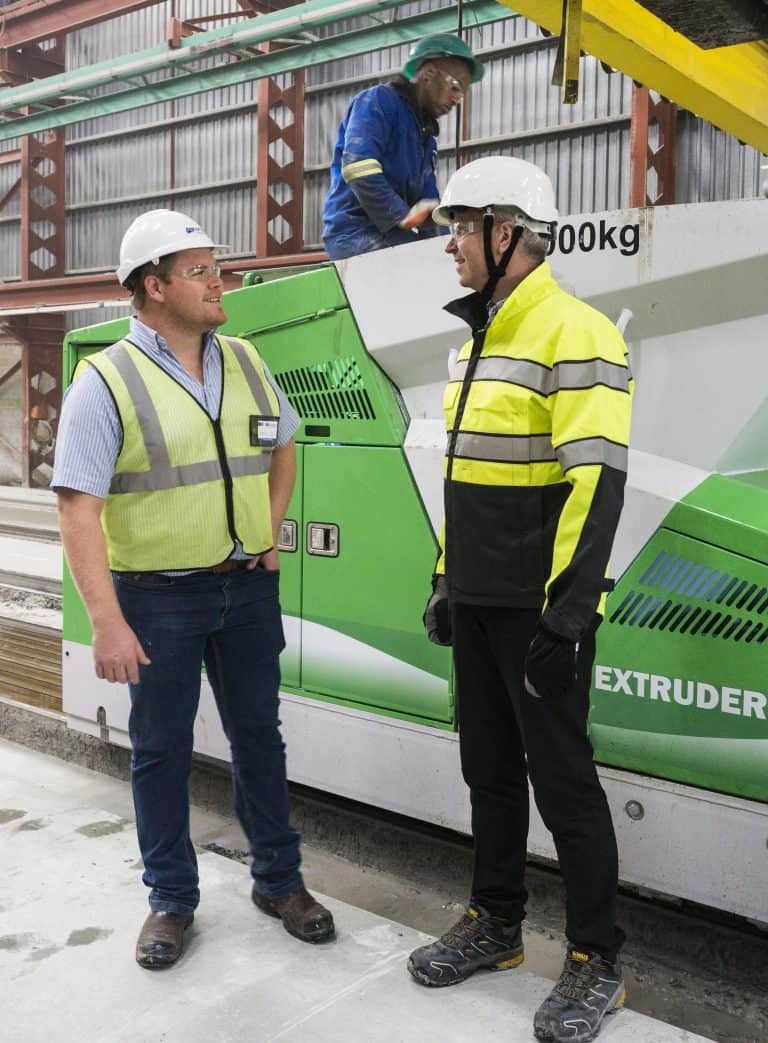The Portland Group, the holding company of Portland Hollowcore, which is a family-owned business, has been in existence since 1988 and in 2000 purchased the Portland Quarry. The company is well known for the quality of aggregate their quarry produces. Portland Hollowcore manufactures precast concrete panels at their Durbanville premises in a purpose made factory. The panels are reinforced with pre-stressed cables and are formed in an extrusion process with machinery and technology supplied by Elematic, Finland.
Social housing, which is defined as rental units aimed at low income households, which are administered by Independent Social Housing Institutions, who are granted state-subsidies to build the units. The backlog in the development and delivery of social housing in the Western Cape is estimated to be over 350,000, with a national figure for South Africa of over two million units. Social housing is one form of housing delivery that is aimed at enabling those who are not able to obtain traditional financing options, to rent a property.
“The demand for social housing in the Western Cape, like elsewhere in the country, is enormous. With the time and cost efficiencies that can be achieved by utilising precast concrete panels, I believe that once developers, who are used to traditional and historical methods of building houses and apartments, embrace this technology further, we can make a substantial and positive impact on budgets and delivery. The key to improving delivery of units, thereby reducing the backlog, is most certainly the precast concrete way, due to its faster and more financially competitive production time” said Nico Heyns, Managing Director of Portland Hollowcore.
“A critical factor to our improved production processes has been the Elematic technology. The new machinery enables us to cast at a faster speed and in more lanes per day – we are able to produce more meters of concrete per minute – and the quality is better. The Elematic machines have resulted in substantially less factory downtime, due to the preventative maintenance scheduling which we adhere to. The machines offer us a lifecycle of between 15-20 years. At any given point in time we are supplying a number of clients whose projects are either on-going or where numerous houses are being constructed. Our precast installations are completed within one day” he said.
Nico Heyns continued “When we visited the BAUMA Expo in Munich in 2008 we were introduced to Elematic. We were impressed by their machines and technical support and how it could enhance our production processes and reduce costs; savings which we could pass on to the developers of social housing in the Western Cape”.

Projects and Awards
Portland offers a full turnkey solution of design, the manufacture of specified precast concrete panels at their factory and delivery to and installation at site. Portland Hollowcore is currently supplying over 150,000 square meters of panels to projects developed by Calgro M3 around the greater Cape Town area. They have also supplied decking and stairs to the Belhar social housing project.
The application for Portland’s precast concrete panels is not restricted to social housing. One of the projects the company is very proud of is the V & A Waterfront parking system – the first ever demountable parking deck in South Africa. The concept was developed by V & A Waterfront and LH Consulting. Due to its popularity in high season, the V & A Waterfront needed additional parking capability, without tying up valuable land space permanently. The demountable parking system gives the V & A the opportunity to either sell the parking to another party for re-erection or they can move the parking to another area.
Nico Heyns explained “We used 200mm thick slabs at an 8m span. There is no structural topping or screed done on top of the slabs as it is demountable. There was a special mix of 35Mpa developed by Portland’s technical team together with LH Consulting to do the grouting of the V joints. This mix design is being manipulated to bond the slabs together but also to ensure minimum broken panels when the parking is being dismantled. The super structure of this building was done in approximately 60 working days. It is a great way to build a parking deck and we are confident that no other system can compete with our erection speed”.
Portland Hollowcore joined the Concrete Manufacturer’s Association (CMA) in 2014 and submitted The Gene Louw Primary School Activity Centre in Durbanville, another of their projects, into the 2016 CMA Awards. The DF Malan High-School Multi-Purpose Centre project was a 2013 Fulton Awards Nominee.
More recently the company installed 200 mm precast concrete panels to the brand new Reddam House School in Durbanville; Nico said “It was an honour to be part of the construction of such an amazing building which is situated right on our doorstep. This school is a state of the art development with the latest finishes and facilities throughout”.

Future Potential
“Using precast concrete slabs definitely offers substantial savings in time. It is less labour intensive for the contractor and offers up to 30 days less standing time on one simple deck. When we install the panels, the client only has to fill the joints and put a screed on top – that takes one day. So while the cost of prefabrication is not necessarily cheaper, the trickle down on-site activities such as transportation, labour and time are all either eliminated or substantially reduced” said Nico Heyns.
Portland Hollowcore has two Elematic Extruders and an efficient Elematic saw assisting them to increase their production of precast concrete panels. “Due to a rising order book for our precast product, we chose to airfreight the new Elematic Extruder to South Africa. We needed more capacity and quickly. While the costs to do this were higher than sea freight, our return on investment was within one month of operation”.
Nico highlighted the fact that the new extruder enables them to manufacture 250 mm thick slabs, whereas before they could only manufacture 160mm and 200 mm thick slabs. The 160mm slabs are mostly utilised in residential housing. “Our experience on the V & A Waterfront parking project using our thickest sized slab highlighted the potential for greater applications for our precast concrete products. The thicker the slab the longer you can span, therefore making it suitable for use in high-rise building developments in Cape Town, as well as parkades and office blocks. The Elematic Extruder offers us extra capability and flexibility, which in turn enables us to look at these opportunities in addition to servicing the social housing sector” she said.



